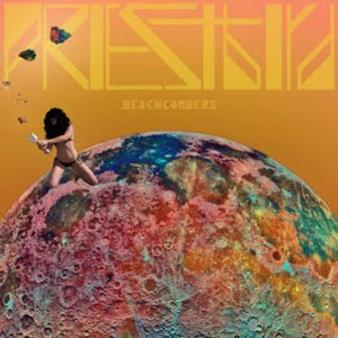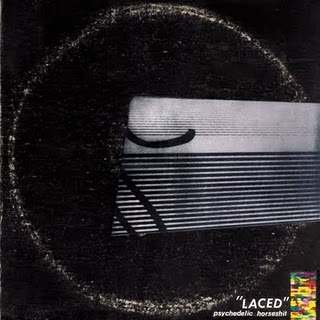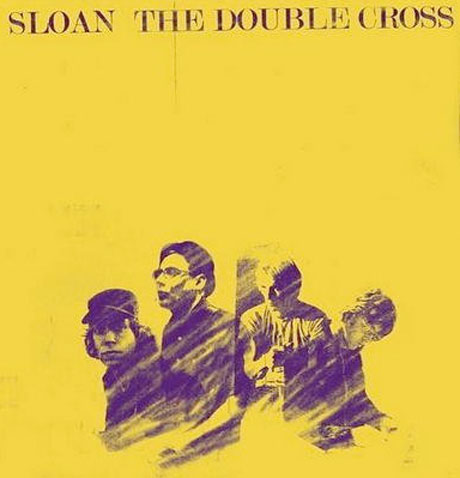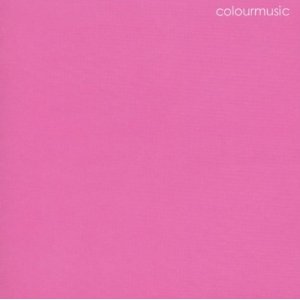I’ve had this blog for a few years now, but only really been seriously writing for it for just under a year. The real beginning was in July 2010 when I began writing for groovemine.com. Mark, the owner of that site, began sending me more music than I had ever heard before. I decided then that I really had an opportunity to fine tune my skills as a listener and as a critic and writer.
I’m trained as a musician. I can read music (obviously) and know a lot about music theory. I read books on music theory for fun because that is what I am interested in. In becoming a “classically trained musician” one studies a lot of “classical” music (though I abhor the term, but that is neither here nor there.) Instead of calling it “classical” music let’s just call it concert music, or serious music if you prefer. The term “classical” is weighed down with so many connotations of time period and it brings to mind dudes in powdered wigs and the idea that that sort of thing is “out of date” or only of interest to people of the upper echelon of society. Anyway, concert music is fine.
In the interest of simplicity let’s just call everything else that isn’t serious music “pop” music. Yes, all of it. Pop music. That doesn’t mean only Top 40 music, it doesn’t mean stuff that is just played on the radio, I mean music that isn’t played in the concert hall, by a string quartet, or by a symphony. Let’s just keep it simple. So there is concert music and there is pop music. We can argue ad infinitum about how to divide up pop music some other day. Let’s just pretend that Lady Gaga and Megadeth are lumped into the same group for now, ok? Ok.
Anyway, when analyzing concert music it’s common to spend a lot of time carefully considering the cultural significance of the work. It’s also appropriate to analyze the functional harmonies, the use of chromaticism, the instrumentation, the orchestration, the tonal scheme etc. etc. There are several ways to go about this: there is Schenkerian analysis, Roman Numeral analysis, one can derive a matrix, find the different uses of tone rows, find uses of hexachordal combinatoriality, tetrachords, modes and on and on.
The thing with concert music is that there is a lot of time wrapped up in it all. The composer is seen as this guy, or gal, that sits hunched over a dimly lit desk, one hand on their head, the other desperately clutching at a pencil as they place each note down onto paper with a purpose. Every single note is wrought with meaning, every second they spend conceiving their “work” and producing it and rehearsing it has a framework of genius at work. When the work is finally completed it is foisted onto the public (which generally doesn’t want it, but that’s another topic entirely) and only after it has survived out there “in the trenches” for 10 years or more, only then does anyone take notice and finally decide, “Hey, this might be something that we might want to look at!” Eventually a musicologist spends several hundred hours hunched over a dimly lit desk, clutching his or her head in one hand and a pencil in the other marking the score, making connections and shouting “Eureka!” to an empty house. Perhaps he wakes the dog. Soon his truly genius writing is published in a journal that is only read by other musicologists, theorists and grad students that are writing papers for the musicologists and theorists.
The general public, goes about their business outside the music hall, unaware that any of this is happening, not that it would change anything if they knew that it did. They listen to people like Sarah Palin that says wonderfully encouraging things like, “arts funding is frivolous”. The general public loves this woman. She’s so much like them.
It truly is great to feel loved outside of ones art. God bless America!
John Adams is one of America’s most successful composers. He has found a niche of sorts writing works about current events. His first opera (yes, people do actually still write operas!) “Nixon in China” premiered in 1987, about Tricky Dick’s visit to China 15 years prior. He also wrote another opera about the hijacking of the Achille Lauro entitled “The Death of Klinghoffer” in 1991, 7 years after the trajedy. His most recent opera (hey, the guy likes to write operas, and he puts a lot of people in the seats!) “Dr. Atomic” is about the Manhattan Project. The opera premiered in 2005.
These are all great works, and I’m only taking an example from one composer for brevity’s sake. The subject matter that Adams is tackling is a tangled web of complex philosophical questions. His works are almost universally loved and accepted upon their premiere. Most composers are not so lucky, but then again most composers aren’t nearly half as good either. The problem that I see is that these works do take such an extremely long time to produce. Because of this lengthy turnaround it appears that the only things really worth writing about are these really monumental moments in extreme human struggle.
Yes these works are worthwhile, and yes they are worth more analysis and promotion. I believe that everyone should take some time to familiarize themselves with as many great works as they can. It is part of our culture, it’s far more than “entertainment”. That being said, so is pop music.
Before I delve into that I’m going to quickly tell a story about my favorite concert composer, Charles Ives.
He was born in Danbury, Connecticut. A true Yankee New Englander. His father was a musician, in charge of a military band during the Civil War and leader of several community bands in Danbury. Charles, in his compositions, would include the sounds of his childhood whether it was the sound of two marching bands coming down the street in opposite directions, the sound of Central Park at night or the sound of the local hook and ladder company. He was not interested in what many other composers were doing at the time and didn’t actually make his living with his music, nor did he want to. He was an extremely successful insurance salesman who just so happened to be one of the most important American composers of the 20th century. Nobody knew this until after he died when conductors like Leonard Bernstein and Leopold Stokowski championed his music. Though during his life he did manage to win the Pulitzer Prize in composition for his 3rd Symphony. He declined the award stating simply, “awards are the badges of mediocrity.” Yes, someone that badass wrote serious music. Serious, experimental music.
One of his experiments involved the use of quarter-tones, an idea he got from his father. His father, equally as crazy, was trying to capture the pitches played by the local church bells. He would run outside to hear, and rush back inside to the piano to try and capture the pitches. Back and forth as many times as he could while the bells were still ringing. He was unable to capture the sound of the bells and concluded that the pitches they were sounding were notes that were located “between the keys of the piano”. He heard something that was so far outside of what was normal that he was not even able to reproduce it by normal means. He needed to wander far beyond what was accepted as normal in order to bring to fruition his music. Charles, throughout his works, continued this trend. He worked in near solitude, almost completely unknown by the serious music world and was truly innovative.
His music is truly amazing and I would urge you to check out his works.
To me Ives’ use of quarter-tones is the most identifiable and most unorthodox thing that he ever did. It was certainly the most notable thing he did as far as sound. If you hear his 3 quarter tone pieces for 2 pianos you will immediately notice a difference in sound. Nobody else was doing this at the time. Now there are several composers that work with exotic scales or scales of their own design in order to brand themselves with a unique sound.
What Ives was doing was writing music that was true to him and because of that there was a sense of immediacy. His music is also much studied to this day and much performed as well. Recordings are still being made and his name is firmly in place as one of the great American composers.
The point of this story is that at the time Ives was writing his music the divide of what was serious music and what was pop music was just beginning to be created. It was the time of Tin Pan Alley where songs were being cranked out by writers that were masters of formula, much like today’s mainstream music. A lot of that music has completely disappeared, but that time also gave us the music of George Gershwin, who doesn’t neatly fit into either category. Somewhere around this time it appears that the decision was made that serious music is worth being held up on a pedestal and being preserved through repeated performance and analysis and pop music is not worthy of the time it takes to listen to it.
With my blog I am directly challenging that idea. Pop music deserves better analysis, and serious consideration. The analysis of pop music needs to match the immediacy of the music. One can’t spend 20 years thinking about the implications of a certain album or a certain style of music because by then it is most likely irrelevant. The music deserves to be considered in its own time and it deserves to be considered by people that know what to consider, which is to say that typical blog-style analysis is not good enough for pop music.
I have read too many reviews that describe how an album makes the reviewer “feel”. That analysis is irrelevant to everyone except the reviewer. I want to know exactly why the guitar line is doing what it is doing. Where are things going harmonically and how does that compare to other music that we are currently hearing right now? I want to know where each band is getting their ideas from. I want to know why bands from Toronto sound different than bands from Bushwick. There are answers to all of these questions and the only way that they are going to be found is through repeated listening. Not just listening to one album over and over again, but listening to every album you can get your hands on, because each album is a piece of the puzzle and will help answer all of the questions that you have and bring to light some new ones.
The current state of pop musicology is ill equipped to handle this task. Most of them are still busy pondering the significance of Nirvana while the rest of us have moved far beyond that. Things take far too long in the university world, and by the time any studying is done the significance is completely lost.
Quartertonality is a word that is made up, but the meaning is real. Quartertonality is looking for new ways to do things. It is taking a serious analytical approach to current, worthwhile popular music. It’s the belief that just because something isn’t popular that doesn’t mean that it isn’t worth looking into. It’s finding the motivations behind everything, the reason behind things, digging further than anyone else, listening more than anyone else and providing thoughtful, honest analysis that is based less on opinion and more on fact. One has to move quick because the amount of music that comes out every week is staggering. There isn’t enough time to sit on an album for 20 years and then write about its significance because that changes every single day.
Sorry there’s no pictures in this post.








